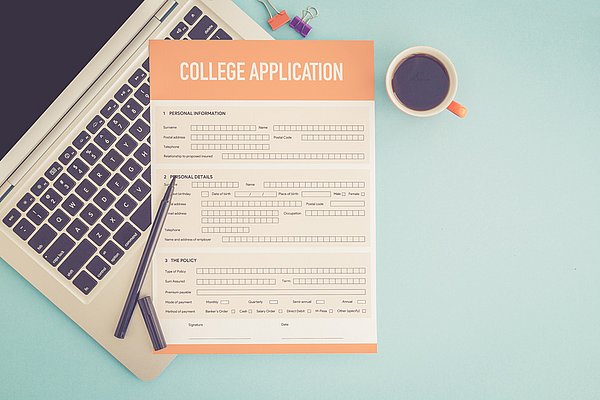Only recently, the OECD declared Germany the third most popular country for international students. In addition to the worldwide high reputation of German higher education and the fact that most (at least state-run) universities do not charge tuition fees but only a small semester contribution, it is probably above all the visa regulations making Germany so popular. Indeed, these regulations allow most students to work while studying making financing much easier. In addition, there are, of course, the numerous great opportunities and experiences that such a study abroad and the familiarization with a new culture have to offer in general. However, how do you apply to study in Germany at all? What requirements do you have to meet and what do you have to consider? We have summarized all this for you!
How do you apply to study in Germany?
What basic requirements do you have to meet to be able to study in Germany?
The most important basis for an application to a German university is the so-called "Hochschulzugangsberechtigung" (higher education entrance qualification), a proof of your school leaving qualification. If you went to school in the EU, Iceland, Liechtenstein, Norway or Switzerland and are allowed to study there you can usually also do so in Germany. If not, you can check the admissions database of the German Academic Exchange Service (DAAD) for most countries to see what your chances of being accepted are. However, you should also check whether your admission is subject-specific, i.e. limited to certain subjects, or general, i.e. unlimited. If you have already studied two to three semesters in your home country, this is usually sufficient regardless of your school leaving certificate. If your degree is not acknowledged, you can apply for a Studienkolleg, take a preparatory course there (usually lasting about two semesters) and gain admission with its final examination. For this course, however, you should already have good German skills. For artistic and creative subjects, you will also often have to take a kind of qualifying test at the respective university in order to prove that you are suitable for the particular subject (e.g. portfolio with drawings for art, audition for music). If you are planning to do your Master's in Germany, you must also be able to prove your completion of a Bachelor's or undergraduate degree that fits the subject. Furthermore, the language of instruction of your study subject is important: If it is not your mother tongue, you must prove having sufficient knowledge with a language certificate. Most Bachelor programmes in Germany are taught in German, although there are exceptions. Especially for Master's programmes, there are many courses in English and some in other languages such as French. Such proof of language proficiency can usually take the form of standardised tests (such as DSH for German, TOEFL for English) or successfully completed and officially recognised language courses. You will need to find out which proof or test result is required at the university in question.
What and where would you like to study (preferably)?

Before you can apply, you must, of course, first decide on a subject and, ideally, on a few universities of your choice. For this purpose, you can use the DAAD database, which lists most study programs in Germany, including information on the language of instruction, possible semester fees and starting times of the respective programs. If you know what you want to study, you should check whether there is a so-called admission restriction for the subject. This is always the case if more people want to study a subject than there are places available and the applicants therefore have to take part in an admission procedure. There is a nationwide restriction for the study programs Medicine, Pharmacy, Veterinary Medicine and Dentistry. If you are interested in one of these subjects, you must reckon that you will need quite good grades in order to get a place. In addition, the "Stiftung für Hochschulzulassung" (Foundation for University Admission) decides who gets a place and at which university. Other programs are only restricted at certain universities. In this case, the average grade of the degree is often decisive for the allocation of places as well, but depending on the university and subject, other criteria such as letters of motivation, tests or selection interviews can also be important. Whether this is the case for your degree programe(s) of choice can also be found in the DAAD database or on the website of the particular university. To be sure, you can also contact the International Office of the university. They will know exactly which admission requirements exist for international applicants.
Whom are you applying to?
There are different ways in which you have to apply according to your country of origin, your academic degree and your study plans. If you are interested in one of the nationally restricted subjects (i.e. medicine, pharmacy, veterinary medicine and dentistry) and come from the EU, Liechtenstein, Iceland or Norway, you must apply to the Foundation for Admission to Higher Education. Applicants from other countries and those for subjects with local admission restrictions or without restrictions must inquire at the desired university whether it is a member of uni-assist e.V.. This is an organisation supporting universities in evaluating applications from foreign students. If this is the case, you apply via the corresponding portal, if not, apply directly to your university of choice. To make sure you get a place, it makes sense to apply to more than just one university, especially for subjects with limited admission. However, for applications to uni-assist you must pay a processing fee of 75.00 euros per first request and 30.00 euros for each further request. When applying via this portal, you should therefore consider carefully how many and which wishes you specify.
Which documents do you need for an application?

Usually, the following documents are required for an application: an officially certified copy of your certificate with the university entrance qualification, an officially translated overview of your subjects and grades, a passport photo, a copy of your passport, certified copies of language certificates and - if available - an officially certified copy of all previous university certificates. It is important that only officially certified copies and translations are accepted! You can have these copies made at the German embassies and consulates in your home country, for example. Some universities also accept English or French documents. There are usually additional fees for the certification. Depending on the university and subject, you may also have to submit additional documents such as a letter of motivation. The best place to check this is at the International Office of your university(/ies) of choice. The DAAD provides an overview of the relevant contact details.
When do you have to apply?
The application phases vary slightly from university to university. For the winter semester, which usually begins in September or October, you can normally apply from the beginning of June until 15 July. Applications for the summer semester usually starting in March or April can often be submitted from the beginning of December to 15 January. Once you have been accepted, you will receive a letter of admission with which you can enroll yourself at the university. The notifications are usually sent in August and September (winter semester) or February and March (summer semester) and are important for student visas as well. Attention: The deadlines are especially valid for state universities, private universities often have different, individual terms!
What can you do to increase the chance of getting a place in a restricted-access subject?
Getting a place in a restricted subject can sometimes be difficult. As already mentioned, you should apply to more than one university in order to increase your chances. If you thereby also apply for some universities in less popular places, meaning not the best-known German metropolises and university towns, this can increase your chances enormously. In addition, you can - depending on the study programe - often collect additional points to upgrade your final grade: For example, grades in subjects relevant to the subject of study are often especially evaluated, qualifying tests are offered or social commitment and professional experience can be credited. In addition, it often happens that applicants who apply to several universities are offered a place but do not accept it. Some universities then organise a kind of lottery in order to raffle off the places that have become vacant to applicants who were not taken first. You can find out about the dates and conditions of these procedures at the particular university. Finally, as most students start in winter semester, it may be helpful to apply for summer semester. You must, however, make sure that this is possible for your desired course of studies.
The applications are done, anything else you need to do?

Once your applications are finally handed in, you should be aware of a few other things. If you are not from the EU or the Schengen area, it is extremely important that you inform yourself about the visa requirements and - in most cases - submit a visa application early. You can get detailed information from us about what you should bear in mind in this context. You will also need - for your student visa as well as for the final enrolment at the German university - a valid (foreign) health insurance. Nevertheless, no need to worry, that's a quick thing to do: Just inform yourself briefly about which tariff is suitable for you and - if you plan to come to Germany together with your family - how you can co-insure your family at a reasonable Price. The conclusion then can be done super-fast and easy online.
Summary
As you have probably already noticed, applying to a German university involves many formalities and is not always straightforward. However, don't worry, it sounds more complicated than it is! The most important thing is that you first think about what and where you would like to study best - and then find out exactly where to apply for the particular university and what documents to submit. If you then also keep the topics of visa and health insurance in mind and have a plan for financing your studies, there's not much left that can go wrong.



